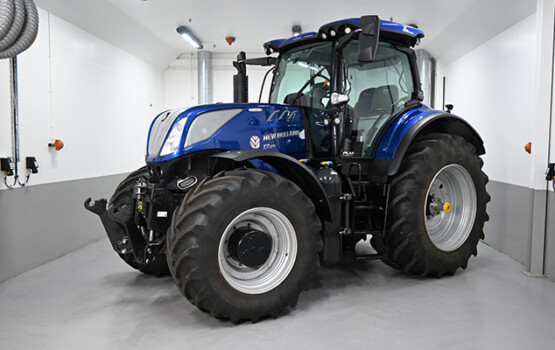Portal for more climate-friendly mobility
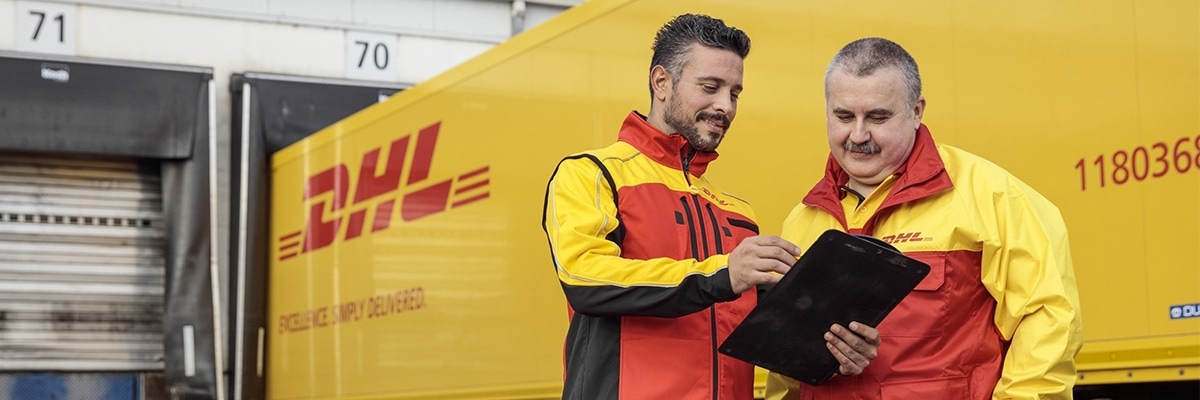
Bio-LNG promising for transport
Together with Shell, DHL Freight is testing the use of bio-LNG (liquefied natural gas from sustainable biomass) in three trucks to sustainably reduce CO2 emissions. By switching from diesel to bio-LNG, a total of 87 tonnes of CO2e were avoided in the first five months of the pilot project for the end customer Grundfos alone.
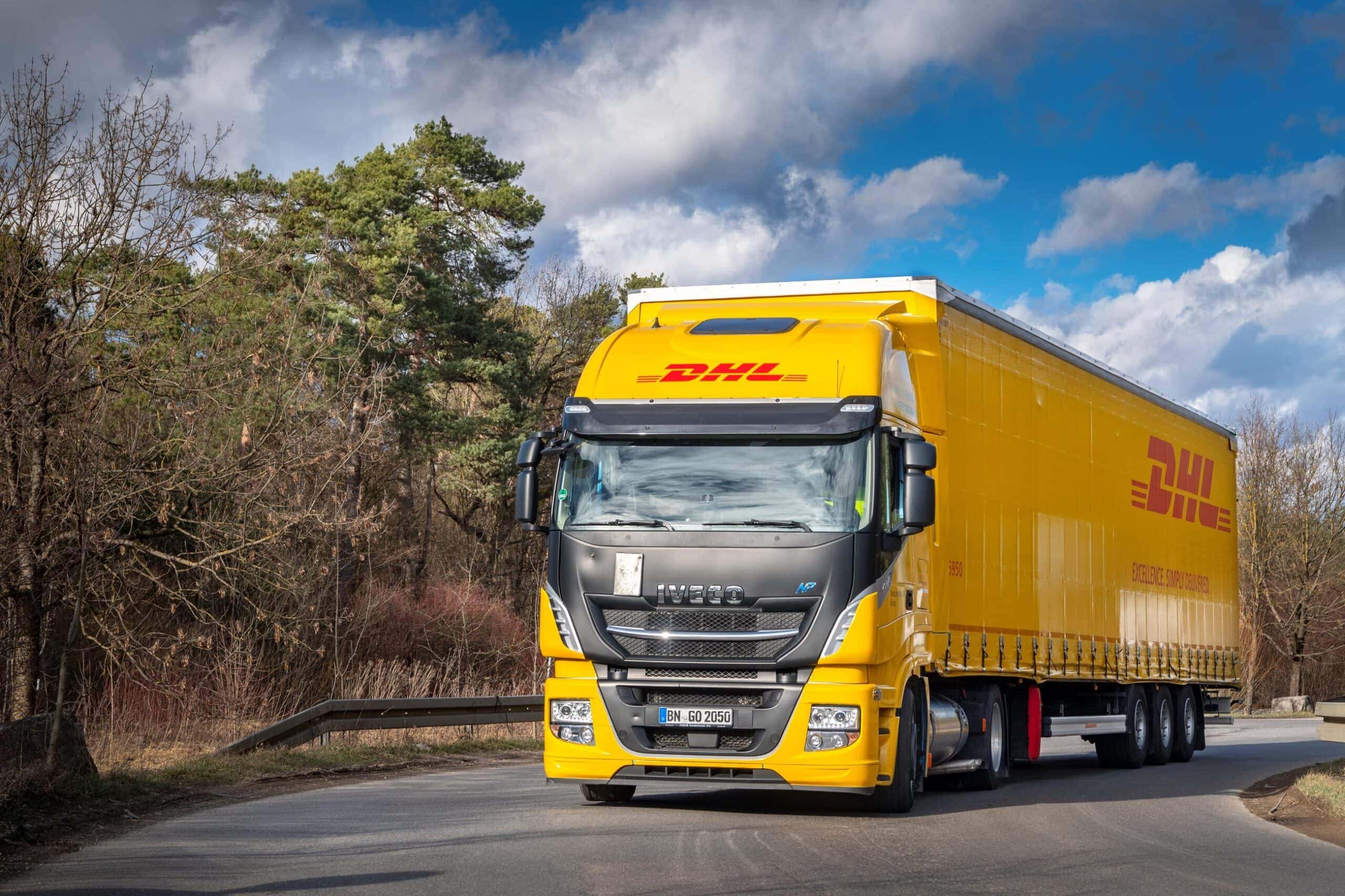 Source: DHL/Andreas Heddergott
Source: DHL/Andreas Heddergott
“Today, the logistics industry is responsible for around 11% of global CO2 emissions. To tackle climate change effectively, the transport sector needs real decarbonisation,” says Uwe Brinks, CEO of DHL Freight. For DHL Freight, sustainable fuel solutions such as biogas or even liquefied biogas (bio-LNG/LBG) are therefore an important lever for changing the fuel mix and reducing emissions in road transport. Together with Shell, DHL Freight is able to massively reduce transport emissions for Danish pump manufacturer Grundfos by using bio-LNG instead of diesel.

The conclusion after the first five months with bio-LNG instead of diesel on the line between Grundfos production sites in Bjerringbro (Denmark) and Longeville-Les-Saint-Avold (France): 87 tonnes of CO2e have been saved! This corresponds to an 85% reduction in CO2 emissions compared to a traditional diesel truck. “By investing in sustainable fuels, but also in fleet renewal, engine retrofitting and efficiency projects, we are reducing the negative environmental impact of the logistics supply chain,” explains Brinks.
Stéphane Simonetta, Group Executive Vice President and COO at Grundfos, is delighted: “We view the sustainable fuel solution proposed by DHL Freight as a significant step in the right direction to reducing CO2 emissions from road transport.” The liquefied biogas used in the pilot project comes from Shell and is produced from agricultural waste. As a result, it meets the criteria of the European Union’s Renewable Energy Directive (RED II) and is a product of a sustainable circular economy. “The results of the project so far indicate that bio-LNG can already reduce CO2 emissions today and thus contribute to the reduction of greenhouse gas emissions required to achieve the EU’s 2030 climate targets,” says Fabian Ziegler, Managing Director of Shell Germany. “This is very promising and good news for the industry.”
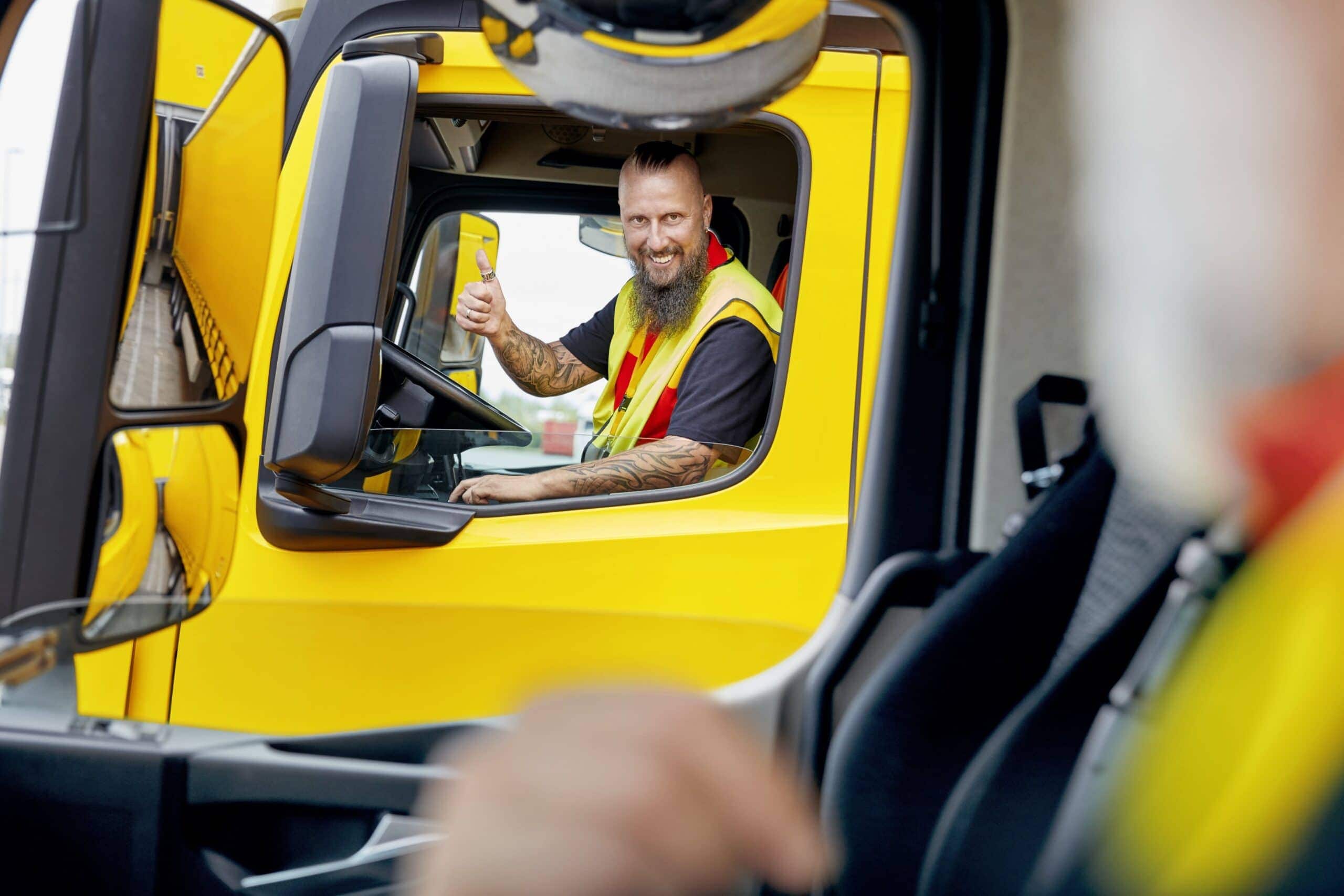 In the pilot project of DHL Freight and Shell, three trucks with LNG propulsion and bio-LNG in the tank are currently on the road between Denmark and France. Source: DHL
In the pilot project of DHL Freight and Shell, three trucks with LNG propulsion and bio-LNG in the tank are currently on the road between Denmark and France. Source: DHL
Shell therefore intends to further expand its bio-LNG offering. Since early 2022, all Shell filling stations in the Netherlands have offered a bio-LNG blend. And from 2023, Shell intends to offer bio-LNG from a new gas liquefaction plant at the Shell Energie- und Chemiepark Rheinland (energy and chemical park) at all of its German filling stations. Thanks to an annual production of 100,000 tonnes of bio-LNG, the plant will one day help reduce the CO2 footprint of freight transport by up to one million tonnes of CO2 per year. (jas, 4 January 2022)
You might also be interested in
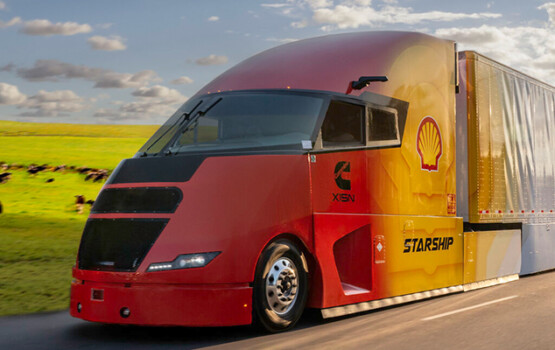
Shell Starship on record hunt
